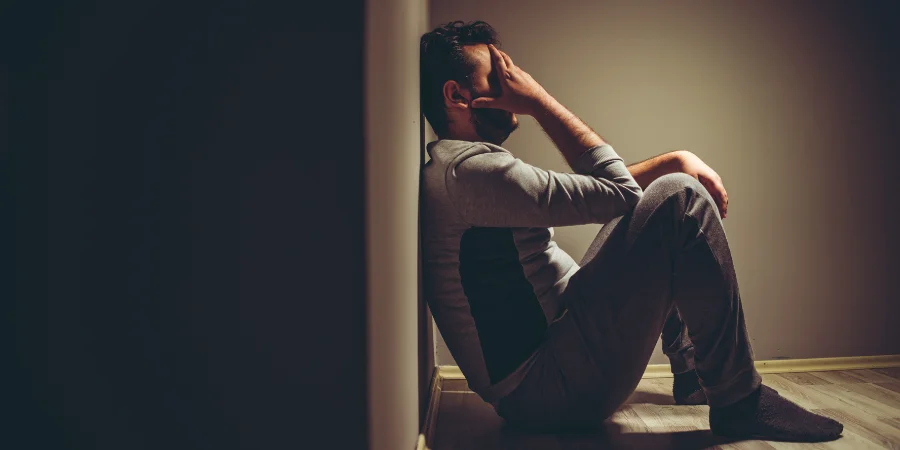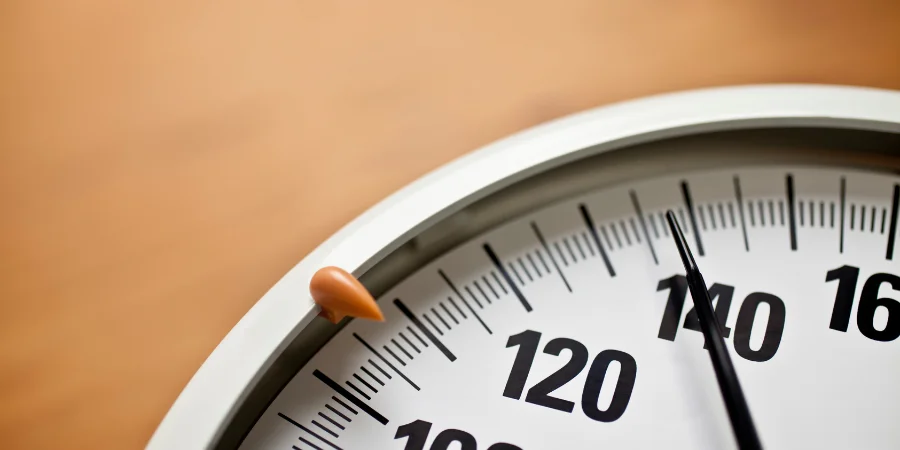Last Updated:
February 25th, 2025
Depression and Addiction | Symptoms and Treatment
Being enveloped in depressing thoughts and feelings without respite can be debilitating, and people will do anything to escape the pain. Sadly, this creates the perfect setting for addiction to appear; it’s easy to see how substance abuse or repeatedly engaging in behaviours may provide temporary relief from depression. However, the long-term outcomes of such actions only exacerbate depression further. Thankfully, there is a healthier and safer way out of depression and addiction through compassion, understanding and effective rehabilitation treatment. Let’s begin by looking at how depression works as a co-occurring disorder, so we can go about tackling addiction and depression together.

What is depression?
Depression is more than a feeling of sadness. A clinical mental illness can make someone feel unwavering misery, affecting their thoughts and behaviour. Depression can creep up on anyone, anywhere, and anytime, sucking people into a black hole they feel helpless to climb out of, no matter how hard they try. Moreover, depression is often invisible, so many people struggling with incapacitating thoughts go unnoticed.
What are the signs and symptoms of depression and addiction?
If you are worrying that you or a loved one has depression and addiction, read the following statements. If some or all resonate with you, it could indicate signs of dual diagnosis:
- I use substances (or partake in specific behaviours) to cope with feelings of worthlessness.
- I often think about suicide.
- I have thought about or attempted to self-harm.
- I struggle to concentrate at work or school.
- I have withdrawn from my family and friends.
- I have withdrawn from hobbies and passions which I used to enjoy.
- I depend on a particular behaviour to make me feel better ( this could be substance abuse like alcohol or drugs or behavioural addiction)
- I try to conceal the source of my addiction from my loved ones. For example, I hide out of sight of bottles, bongs, drugs, zip-lock bags, receipts, and pill packets.
- I don’t look forward to the future.
- I struggle to sleep properly.
- I have either lost or gained a noticeable amount of weight.
- Thinking about my next “fix” gets me through the day.
How depression and addiction are linked
To help us better understand how addiction is connected to depression, let’s look closely at the classified types of depression and how addiction potentially plays a role:
- People may begin to abuse substances if they are feeling chronically sad, just as a means of getting through life. Major depression can severely impact a person’s mood over a long period. Genetics plays a role in significant depression alongside unhealed past trauma that can go as far back as infancy.
- Reactive depression is when a person’s depressive mood has been triggered by a distressing life event such as divorce, grief, illness, heartbreak, bullying, rejection of any kind, unemployment, or current world events (pandemics, wars, etc.). People may be unable to cope with sudden emotional changes and use substances or behaviours as a distraction.
- Postpartum depression occurs in 11% of all new mothers.
Not only do mothers experience hormonal and physical discomfort after birth, but having a new baby can trigger an array of emotions that can cause women to experience depression. Moreover, postpartum depression can occur in fathers, too, and they may seek refuge in substances of addictive behaviours. - Studies have shown;
People with alcoholism tend to >abuse alcohol seasonally. This may be due to seasonal affective disorder (SAD), which comes from the pattern of mood changes in tandem with seasonal changes. For example, although people can feel depressed in Summer, they often experience stark episodes of depression during the Winter months.
The best way to treat depression and addiction
When treating co-occurring disorders like depression and addiction, it’s essential first to address the primary condition (the illness that causes the most problems). For example, if depression is your primary disorder, then a combination of medication and therapy can help you feel better.
Attending rehabilitation for co-occurring disorders is the best way for you to overcome addiction and learn proper coping mechanisms for coping with depression. Rehab will offer you various therapies and holistic treatments which allow you to process all your thoughts and feelings that may have felt tangled in the process of addiction and depression.
Rehab is the ideal place where you can get even your most complex thoughts and emotions out without judgement. A professional psychologist will discuss everything with you in a safe and confidential manner. As a result, you will likely gain more clarity of thinking and feeling like you’ve experienced a much-needed release. This is a step towards a healthier outlook on yourself and your future.
How Primrose Lodge treats co-occurring disorders
At Primrose Lodge, we are committed to treating addiction, and in the process, we will help you to manage depression. If you tackle your co-occurring disorder with us, you will reside in a comfortable and safe environment where your day-to-day needs will be taken care of. If you are addicted to a substance, a thorough detox is required, alongside counselling to address your triggers and equip you with the essential tools you need to prevent relapse in future. In addition, you’ll be offered an array of ground-breaking psychotherapy treatments alongside programmes designed to relax the mind and body, such as Yoga and gong bath healing. Such treatments can help calm your nervous system and bring you peace of mind, so you can reconnect to the essence of who you truly are- before addiction and depression took hold of your life.
What people with depression and addiction want you to know
If you have a family member, friend or colleague suffering from depression and addiction, it can be hard to know how to support them. They will be especially vulnerable, so we want to be mindful of our words and actions. Below of some everyday things people with depression would like you to understand:
Let’s restore your well-being today
Depression is the most significant cause of disability on the planet. If you know someone experiencing addiction and depression, let them know there is hope for recovery. If you are reading this knowing that you have a co-occurring disorder, we truly understand what you are going through; many of our Primrose Lodge team have experienced both addiction and depression, so we understand how you must feel. However, we also know you no longer have to endure the anguish of addiction and depression. So, call us today, and we will help you take the next step toward restoring your mind and body.




